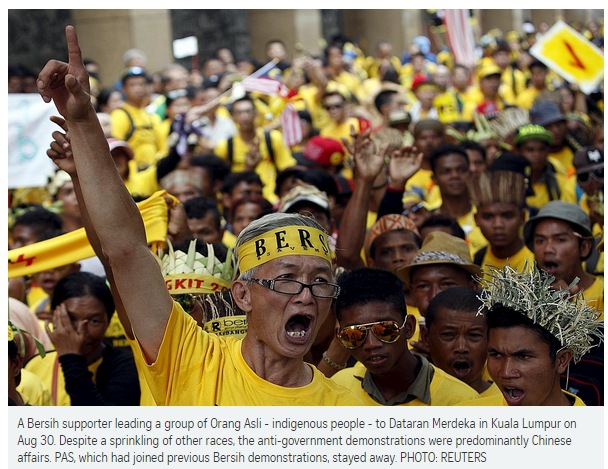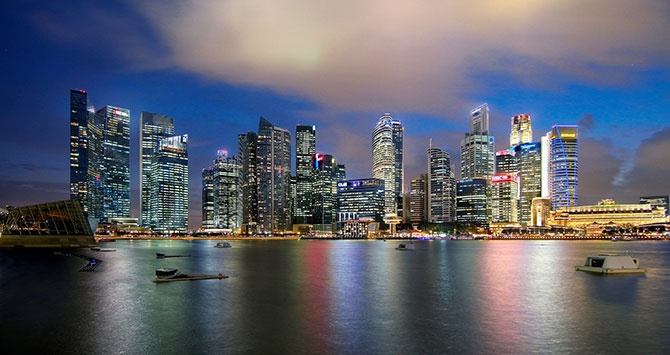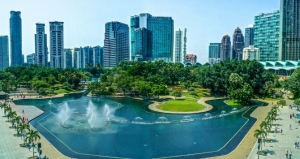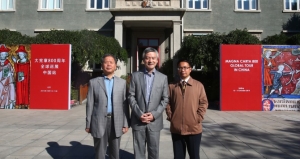Professor Danny Quah’s latest article has been republished in The Malaysian Insider and The Edge.

The Realist position in the Straits Times article “Singapore is not an Island” (Bilahari Kaushikan, 06 Oct 2015) might grate for many readers.
The article talks about young Malaysian Chinese being delusional for believing the Malaysian political discourse will actually change.
It warns ominously how a likely outcome might be “even less space for non-Muslims”.
It argues how Singaporeans should wish “the worst does not occur […] but to prepare ourselves as if it might”, and how Singaporeans “have no choice but to work with whatever system or leader emerges in Malaysia”, even as “some systems will be easier to work with than others”.
Such statements sit uneasily with some readers [Ong, Pua].
But the article’s underlying Realist argument (“It’s not a state’s job to look out for the well-being of people elsewhere or the position of another state. No hard feelings, that’s just the system.”) is not atypical in international discourse. And Realism is fashionable these days, and a consistent worldview besides, and therefore easy to defend.
More critical, it seems to me, is not the problem of idealism vs realism. It’s whether the writer has accurately read that in Malaysia, as he says bluntly, “the pressure point is religion”. This line jars. The situation in Malaysia is one where people deal, every day, with bread and butter issues like escalating corruption, criminal malfeasance, rising extreme poverty, widening income disparities, and a failure in national governance. In the midst of this wide array of social problems, the writer points to… religion. Such a diversionary tactic, long practised by power elites everywhere, puts blame elsewhere than where the problem genuinely rests.
By contrast, leading narratives on Bersih4 or 1MDB make no mention of race or religion. For background, I like NYT 20 Aug 2015 and The Diplomat 05 Aug 2015 (obviously), among others. More recently, those reporting on the mysterious circumstances surrounding 1MDB or raising questions on alleged money transfers surrounding the Prime Minister’s accounts have been removed from office, replaced, transferred, suspended, or either threatened with or actually arrested for undermining democracy. Malaysia’s formidable central bank sought criminal proceedings against 1MDB for violating regulations on overseas cash movement, only to have the Attorney-General refuse to take action (WSJ 09 Oct 2015).
In September the FBI began to investigate allegations of money laundering against 1MDB; the US Justice Department opened an inquiry into US properties purchased through alleged corruption surrounding the Prime Minister and his close associates. By late 2015 Singaporean and Swiss banks had frozen financial accounts they determined were connected to the 1MDB investigation. Malaysia’s own royalty, broke with tradition, to announce a “crisis of confidence” from the government’s failure to deal convincingly with questions surrounding 1MDB. Transparency International’s statements on Malaysia consistently refer to strong, independent investigative authorities, press freedoms, and action on cross-border corruption.
Sure, race and religion have factored critically in Malaysia’s history. But all these recent developments cut across religious and ethnic categories. They concern, instead, clean transparent governance and zero tolerance of corruption: Singapore has long advanced these same principles. Malaysians, young and old, are excited and energised by their possibility. Concerned law-makers, conscientious observers, critical law-makers have all worked hard to stem the serious breakdown in transparency, confidence, legitimacy, and legality in Malaysia.
None of these, according to the Singapore Straits Times article, matters. That essay ignores all the positive change happening, and constructs a narrative built on how it is, instead, religion and by implication race driving the Malaysian political landscape.

Singapore’s political and economic success has been constructed on the ruthless extermination of corruption; well-functioning public services; and a clean, transparent government with “consent of the governed” – in other words, a success leveraged on the efficient provision of public goods. Such principles are admired and sought worldwide. Ordinary people everywhere want these for their own. Legitimacy of the state might be only aspirational in so many parts of the world, but it is that noble vision that drives a people’s relations with their state – this holds across the entire geopolitical span, from the US through China. That ordinary Malaysians want these too is to be celebrated, not dismissed.
No one is under any illusion that overcoming Malaysia’s steep challenges and embedded history will be easy. But battling such odds is exactly what another Southeast Asian country did successfully, in that often-repeated tale of starting out with nothing but tropical swamp and rainforest, a divided and uneducated population, zero natural wealth, surrounded by hostility, indeed life and death struggles against political intrigue and machination – both within and without – and then, mere decades later, achieving first-world economy status, becoming the world’s most transparent and competitive market, having the world’s least corrupt government, and enjoying the world’s most efficient public services. If its people too had succumbed to the idea that their hopes were mere delusion, modern Singapore might not today exist.
(Both critics and supporters of its success like to point to how Singapore could achieve certain objectives only because it is small. First, I don’t think anyone in 1960s Singapore was going around trumpeting how that state was bound for success because it was so small. Instead, its diminutive size was a source of fear and foreboding. Second, simply as a matter of mathematical and economic logic, anything a small state can do, a big state can as well, simply by chopping up itself. By contrast big economies might enjoy increasing returns to scale; small ones definitely don’t. That big states don’t spontaneously divide into small ones happens for all kinds of interesting reasons, but the logical option is always open to them to go small. That Singapore or Hong Kong or Papua New Guinea might enjoy special advantage that makes them more successful because they are small is, in my view, a complete non-explanation.)
To me, this Singapore Straits Times article is not striking for its raw, naked Realism. What is notable about it is how a seasoned, wise, and supremely talented political observer such as its author fails to acknowledge the universal aspirations of Malaysia’s citizens, but instead sees only the obvious surface tensions in that country. In the relentless rush of Realist discourse, he ends up articulating a narrative no deeper than what power elites have, for decades now, wanted ordinary people to believe.
Singapore’s political and economic success has been constructed on the ruthless extermination of corruption
Danny Quah
Related Posts
   |





